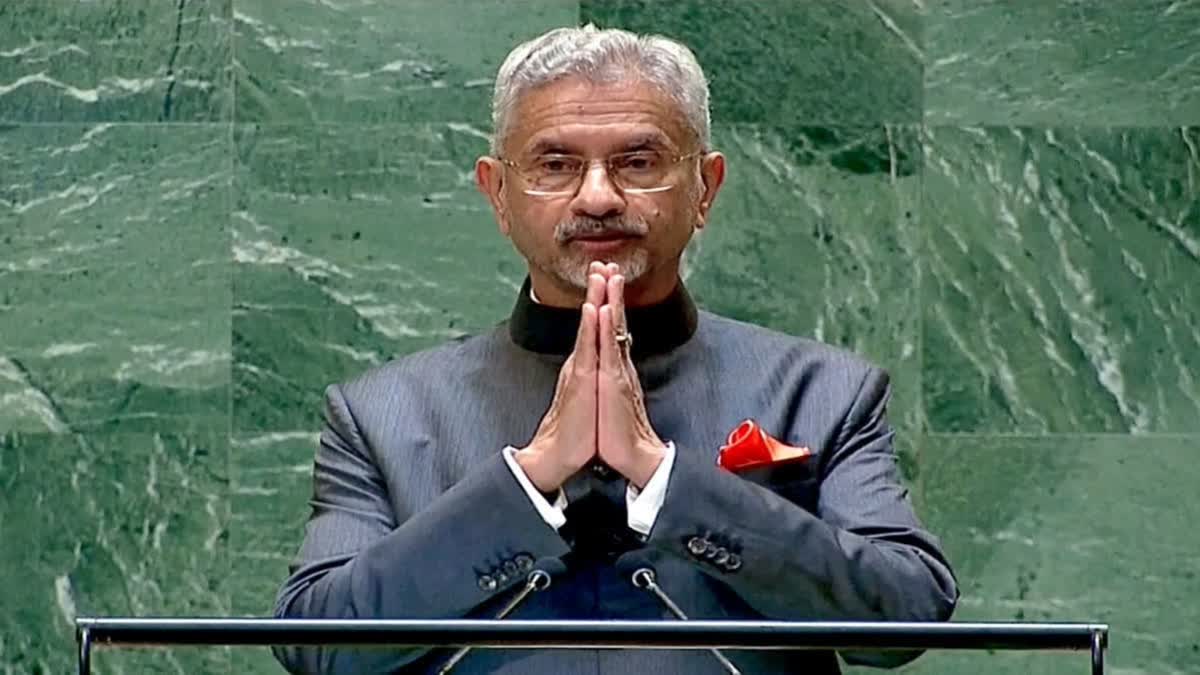Delhi: “In an era of leveraging and weaponization, policy makers have to place national security filters when it comes to economic decisions, including those of investment,” said EAM Dr S Jaishankar.
He was speaking at the Special Plenary Session on “India and the World: Partnerships for Progress” at the 29th CII Partnership Summit, organised by the Confederation of Indian Industry (CII) in partnership with the Department for Promotion of Industry and Internal Trade (DPIIT), Ministry of Commerce and Industry in New Delhi today.
The very economic landscape that we are looking at is in the midst of a deep transformation - responding effectively to that cannot just be a national endeavour, it needs more partnerships, he added. Elaborating on how recent global events including the Covid-19 pandemic, the US-China frictions and the Russia Ukraine conflict have made the world more insecure, Dr Jaishankar stressed on the need for trusted and reliable partnerships and more natural collaborations for India going forward, especially with its neighbourhood.
Speaking on the election of Donald Trump in the US and the associated implications for India, Dr Jaishankar asserted that India’s strategic convergences with US have only grown deeper with time which offers many collaborative opportunities.
Highlighting the need for building better at home, Dr Jaishankar stated the need for enhancing capabilities, fostering innovation, and widening skill sets. He underscored the need for greater data awareness and the need for investments in developing related capabilities with the arrival of the digital era and the AI revolution. He highlighted semiconductors and electric mobility as critical focus areas in this regard.
Dr Jaishankar also underlined the availability of talent as a critical factor in the knowledge economy and the need for partnerships to focus on demographic challenges such as the growing mismatch between the demand for skills and its unavailability.
This is a multidimensional challenge, and the industry must do its share by offering training, internships, and other opportunities, he added.
Further, EAM emphasised the need for building manufacturing at scale and efficiency for India to become a credible partner abroad. He mentioned that India’s efforts at enhancing logistical and infrastructural efficiency is being appreciated globally today.
Initiatives such as Gati Shakti are making it easier to do business and enhancing the ease of living in India, while positively impacting the business climate, he added.
With respect to India’s FTA strategy, Dr Jaishankar stated that while these offer possible benefits and avenues for partnerships, unfair, subsidised and large-scale competition from external exposure can be a challenge, especially for low-income countries with small producers. However, it would be unwise to forgo opportunities and therefore the working principle must be one of proceeding with caution, stated Dr Jaishankar.
Dr Jaishankar added that connectivity is a critical priority, especially amidst global challenges such as climate change and economic shocks like the Covid-19 pandemic. He stated that while India today occupies a crucial position globally, forging more connectivity partnerships will strengthen India’s position further.
The Minister highlighted the need for India to work together with greater determination especially as the world economy is entering a turbulent era. The complex landscape will be a challenge for diplomacy and businesses alike and partnering together will provide the best value going forward, he added.
“The need for renewed focus on global partnerships - to build collaborations and global resilience is indeed most critical,” said Chandrajit Banerjee, Director General, CII in his initial remarks.



